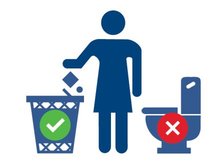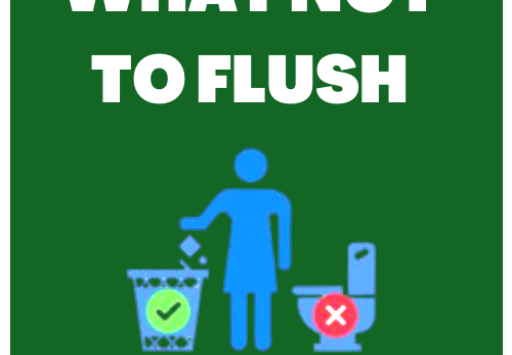It Sounded Like a Good Idea at the Time

Sometimes you have something in your hand and think, ‘this will be okay’ and if it’s someone toothbrush and there’s grout to clean and you’re annoyed at them, well maybe. However if it is something you know shouldn’t go down to your septic, then no. Just no. Back away from the drain and toss it in the trash.
Easiest way to think of what works for a septic tank digestion is bio-degradable. And even then not ALL things bio-degradable get to go down your drain.
Animal feces - Cat and dog waste need to be put in the trash.
-Indoor cats use litter boxes and even if it says right one the box septic friendly. It isn’t. The material used in litter boxes can clog your pipes and cause blockages in the septic systems itself.
-Whatever dogs eat, and they eat some interesting things, goes in one end and comes out the other. It is more ecologically friendly to dispose of feces in the trash.
Medicine – Please dispose of properly.
-Most towns have several places to drop off unneeded medicine
-If put down drains it can affect groundwater as well nearby streams or lakes.
Hazardous chemicals - Your septic system needs good bacteria to break down waste.
-Heavy chemicals like bleach, motor oil, paint and poisonous chemicals are big DON’Ts for your septic tank.
-This will contaminate your soil.
-Dispose of these chemicals and items like them properly and use environmentally safe cleaning products for your sinks and bathrooms.
-Fabric softeners, although they make clothes feel soft, comes at a price as they are coated in chemicals. And the last place they need to be is in a septic system.
A few other items that need to thrown in the trash and not down your drains are sanitary napkins or tampons; cigarette butts, earplugs, cotton balls and paper towels or dental floss.
All these items can seriously interfere with a productive, healthy septic system. At all costs you want to avoid anything that will cause clogs or blockages in the pipes or upset the balance of the good bacteria that breaks down waste. Protecting your septic system not only helps groundwater and nearby water to stay healthy but also allows for your septic system to continue providing for your home and family.
